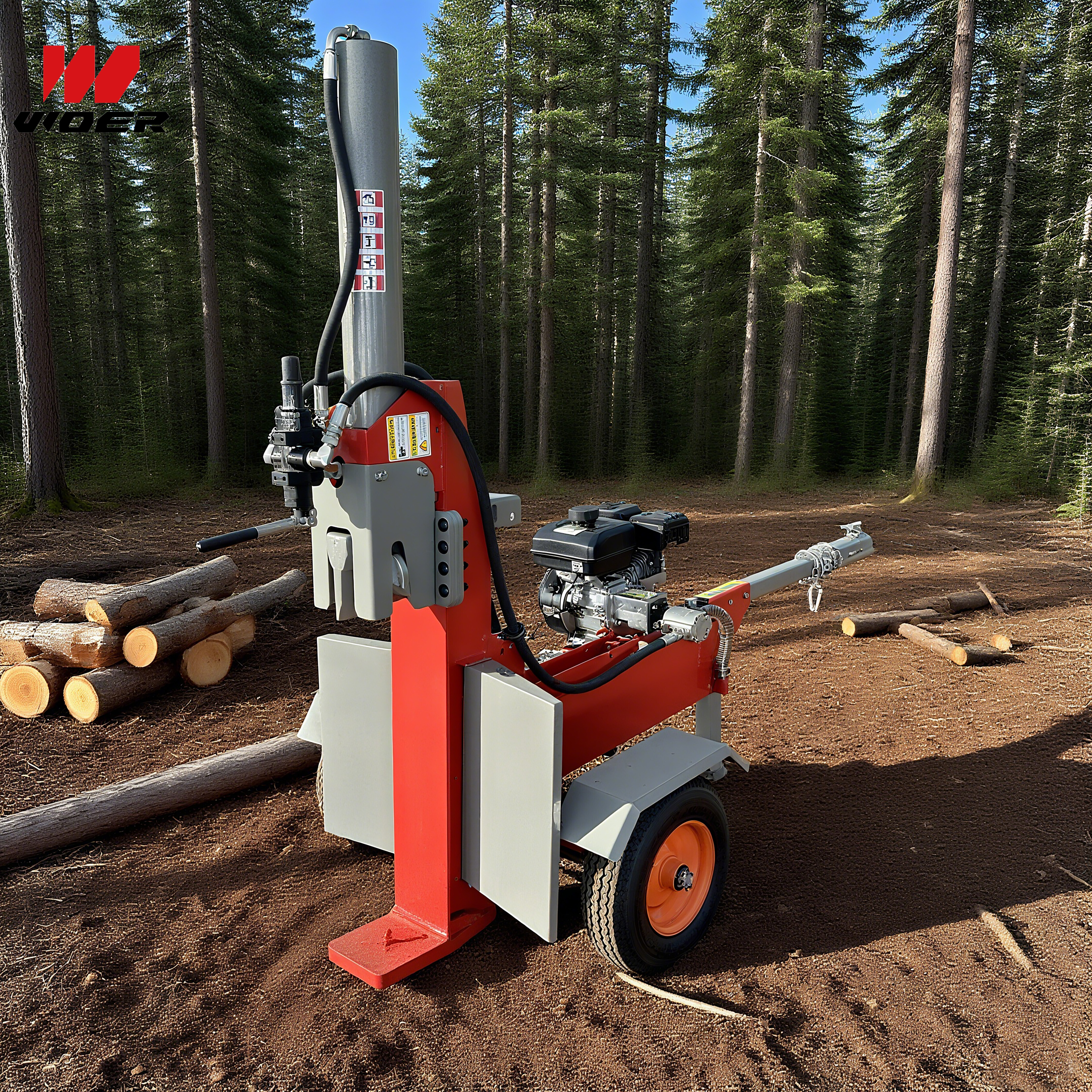Navigation
Contact us
Phone
Message

Applications and Buying Guide for Hydraulic Wood Splitters
Q1: In what scenarios are hydraulic wood splitterscommonly used?
A1: Hydraulic wood splitters are widely used in forestry operations, commercial timber processing, firewood production, and large-scale farm work. They are also suitable for homeowners who regularly process large volumes of hardwood.
Q2: Why choose a hydraulic wood splitter over electric or manual models?
A2: Hydraulic splitters offer higher tonnage, stronger force, and greater efficiency, making them ideal for handling dense hardwoods and heavy-duty tasks where electric or manual splitters may fall short.
Q3: Are hydraulic wood splitters suitable for small farms or households?
A3: Yes. While typically used in commercial forestry, smaller hydraulic models are available for personal farms or households that require regular and efficient wood processing.
Q4: How do I choose the right hydraulic wood splitter capacity?
A4: Capacity should be matched to the log type and volume. For small to medium hardwood logs, 20–25 tons is sufficient. For large or dense logs, 30–40 tons or higher is recommended.
Q5: What power sources are available for hydraulic wood splitters?
A5: They can be powered by gas engines, PTO (tractor-driven), or electric motors. The choice depends on your work environment, mobility needs, and fuel/electric availability.
Q6: What safety features should I look for when buying a hydraulic wood splitter?
A6: Look for two-hand operation controls, emergency shut-off, automatic return wedges, and protective guards to reduce the risk of injury.
Q7: How important is portability in selecting a hydraulic wood splitter?
A7: For users who need to move the splitter across farms or logging sites, trailer-mounted or towable designs are highly recommended. For stationary use, a stand-alone splitter is sufficient.
Q8: What maintenance requirements should I consider?
A8: Regularly check hydraulic fluid, inspect hoses and seals, and sharpen the wedge. Machines with easy-access maintenance points are more user-friendly and cost-efficient.
Q9: How does budget influence the choice of a hydraulic wood splitter?
A9: Prices vary by tonnage, features, and portability. For heavy-duty commercial use, investing in a high-capacity, durable model pays off in long-term efficiency and lower maintenance costs.
Q10: Is operator training necessary for hydraulic splitters?
A10: Yes. Proper training ensures safe operation, better handling of logs, and longer machine lifespan. Always review the user manual and follow manufacturer guidelines.

This stunning beach house property is a true oasis, nestled in a serene coastal community with direct access to the beach.
Contact
West Street, Melbourne Victoria 3000 Australia